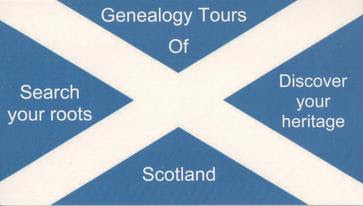In August 2019 many -
but by no means all - of North Lanarkshire’s Poor Law records were made
available in digitised form on Ancestry.com. This article provides an overview
of which records you will be able to find and how you can use them for your
family history research. You can read an
extended version of this article on: https://blogs.ancestry.co.uk/ancestry/2019/08/16/making-discoveries-in-the-north-lanarkshire-poor-law-records/
What are Poor Law records?
Poor
Law records are records which were created under the Poor Law (Scotland) Act 1845 which
established a secular system of distributing poor relief. The main records of interest to family
history researchers are those kept by the official appointed in each parish to investigate cases
of poverty and to pay out relief, the Inspector of Poor. These are the Registers of Poor and the Record of
Applications for Relief.
North Lanarkshire
Archives’ Poor Law records originate from civil parishes which existed within
the former County of Lanark between 1845 and 1930. On Ancestry you will find the digitised registers
of the following parishes: Bothwell, Cambusnethan (Wishaw area), Dalziel
(Motherwell area) and Shotts.
Why
are these records of interest to family history researchers?
As the
application and registration system involved a type of means testing which
required detailed information about the person applying for relief and about
their family, the resulting records can contain details of your ancestor you
would not find together on one page anywhere else. Poor
Law records therefore can help take your research
further at any stage of your family history journey.
Registers of Poor / later General Registers of Poor
Initially, each parish maintained a Register of Poor (General
Register of Poor from 1865). In this
example from a General Register of Poor from Dalziel Parish (below) you can see
why these are such a fascinating resource. The example regards Mary Doyle or Slamin who
first applied for poor relief when her husband was ill and then stayed in the
system for several years after he passed away.
The document shows at the top her circumstances at the time of her
acceptance into the system and in the bottom part what happened to her and her
children while she received money from the parish.
Registers of Poor/General Registers of Poor digitised:
CO1/23 Bothwell Parish
Bothwell
Parish Council. Register of poorhouse inmates. 1905 – 1909
Bothwell
Parish Council. Children's separate register. 1909-1915
Bothwell
Parish Council. Register of guardians. 1909-1915
Bothwell
Parish Council. Register of other parish poor. 1912-1914
Bothwell
Parish Council. General Register of Poor. 1894-1915
Bothwell
Parochial Board. General Register of Poor. 1862-1888
Bothwell
Parochial Board. Account, charge and discharge, and list of registered poor. 1892-1896
CO1/26 Cambusnethan Parish
Cambusnethan
Parochial Board. Register of Poor. 1863 - 1864
Cambusnethan
Parish Council. Register of other parish poor. 1885 - 1915
CO1/37 Dalziel Parish
Dalziel
Parish Council. Registered poor pay roll. 1893-1912
Dalziel
Parish Council. General Register of Poor. 1883-1892 and 1900-1916
CO1/54 Shotts Parish
Shotts
Parochial Board. Register of Poor. 1846-1865 and 1871-1879
Shotts
Parish Council. General Registers of Poor. 1870-1911
Applications for Relief
Application Registers contain more entries per year than the Registers
of Poor as multiple applications from individual paupers are recorded as well
as details of the so called 'casual poor', i.e. persons who received a one-off
payment from the inspector without a decision by the board and therefore were not
recorded on the poor roll.
The applications for poor relief recorded the main
information the Inspector of Poor required to make a decision on the applicant.
These included:
· Age
· Religion
(Prot. – R.C.)
· Occupation
· Average
Value of Earnings per week
· Names
of Dependants and Children living with Applicant, and Ages and Earnings
· Names
of Children not living with Applicant (Ages – Residences – and Earnings)
· Country
of Birth (English, Irish, Foreign – or Parish if Scotland)
· Condition
(Married – Single – Widow – Widower – Orphan – Deserted – Separated)
· Cause
of Disablement, whether Wholly or Partially
· Wholly
or Partially Destitute
· Name
of Parents and circumstances if alive
· Length
of Residence in present House and of previous Residences (Settlement – Parishes
claimed against &c.)
Application registers
digitised:
CO1/23 Bothwell Parish
Bothwell index to registers of applications.
1900-1914
CO1/26 Cambusnethan Parish
Cambusnethan applications for relief.
1855-1916
CO1/37 Dalziel Parish
Dalziel
application registers. 1865-1875 and 1877-1917
Poorhouse records
Only
one item specifically dealing with poorhouse residents has been digitised which
is the New Monkland Parish Poorhouse
register of inmates, 1849 – 1862 (CO1/50/24).
There
were several other poorhouses in North Lanarkshire whose specific registers
have not survived. However, you may find
that your ancestor was sent to the poorhouse (indoor relief), rather than
receiving outdoor relief, from their entries in the Application Registers and
General Registers of Poor.


No comments:
Post a Comment